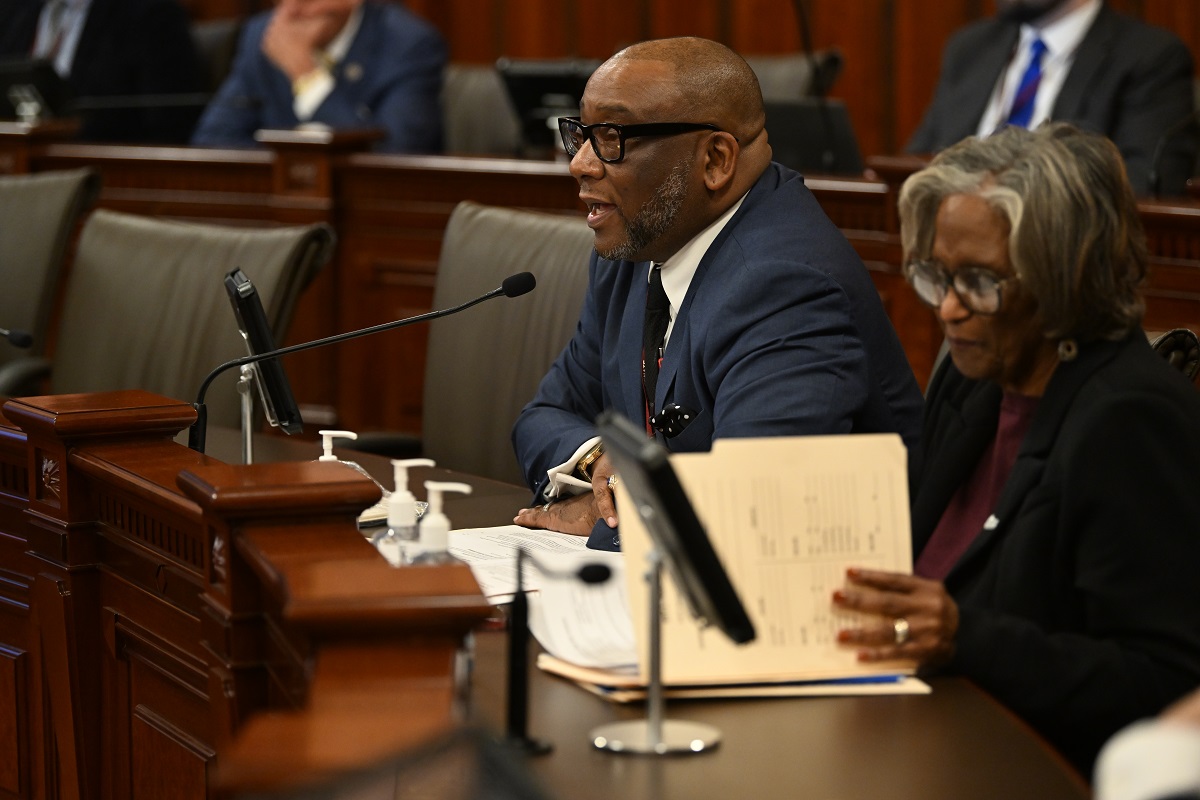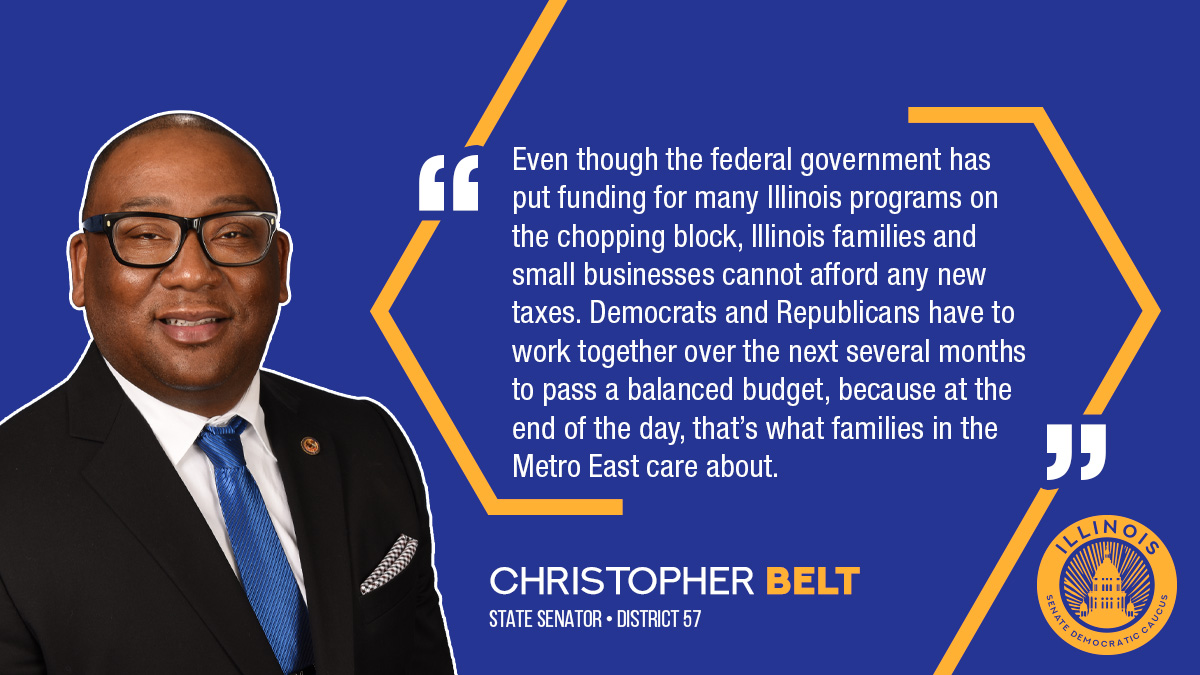- Details
- Category: Press Releases

SPRINGFIELD – State Senator Christopher Belt introduced a new measure to increase access to life-saving mental health resources and strengthen suicide prevention efforts across the state.
“What we’re doing is expanding suicide prevention education across the entire state,” said Belt (D-Swansea). “These are meaningful steps to address mental health proactively and compassionately.”
Read more: Belt’s measure expands suicide prevention awareness and education
- Details
- Category: Press Releases

SPRINGFIELD – State Senator Christopher Belt’s legislation that would require service providing companies to give consumers a two-hour service window for appointments advanced through the Senate Judiciary Committee.
“People shouldn’t have to stay home from work all day waiting around for the cable guy to show up.” said Belt (D-Swansea). “This is about basic respect for families who have to balance jobs, child care and everything in between.”
Read more: Belt’s bill requires service providers to give consumers two-hour service window
- Details
- Category: Press Releases

SPRINGFIELD – After hearing the governor’s budget proposal for Fiscal Year 2027, State Senator Christopher Belt (D-Swansea) released the following statement:
“Even though the federal government has put funding for many Illinois programs on the chopping block, Illinois families and small businesses cannot afford any new taxes. Democrats and Republicans have to work together over the next several months to pass a balanced budget, because at the end of the day, that’s what families in the Metro East care about.”
Belt’s new bill requires service providers to give one hour notice before arriving at your residence
- Details
- Category: Press Releases

SPRINGFIELD – State Senator Christopher Belt introduced new legislation that would require service providing companies to give consumers a one hour notice when they will arrive at your residence.
“I don’t know about you, but I’m pretty fed up with companies giving me a five hour timeframe to show up at the house,” said Belt (D-Swansea). “As private equity continues to buy up family businesses across the country, we need safeguards in place to protect our residents from these giant corporations that give us no other option.”
More Articles …
- Belt’s measure to allow volunteer fire departments to receive state grants
- Belt highlights almost $1 million in funding for local apprenticeship programs
- Belt highlights expansion of job training programs at community colleges
- Belt law protects workers taking time off for organ donation starting Jan. 1
Page 1 of 106



